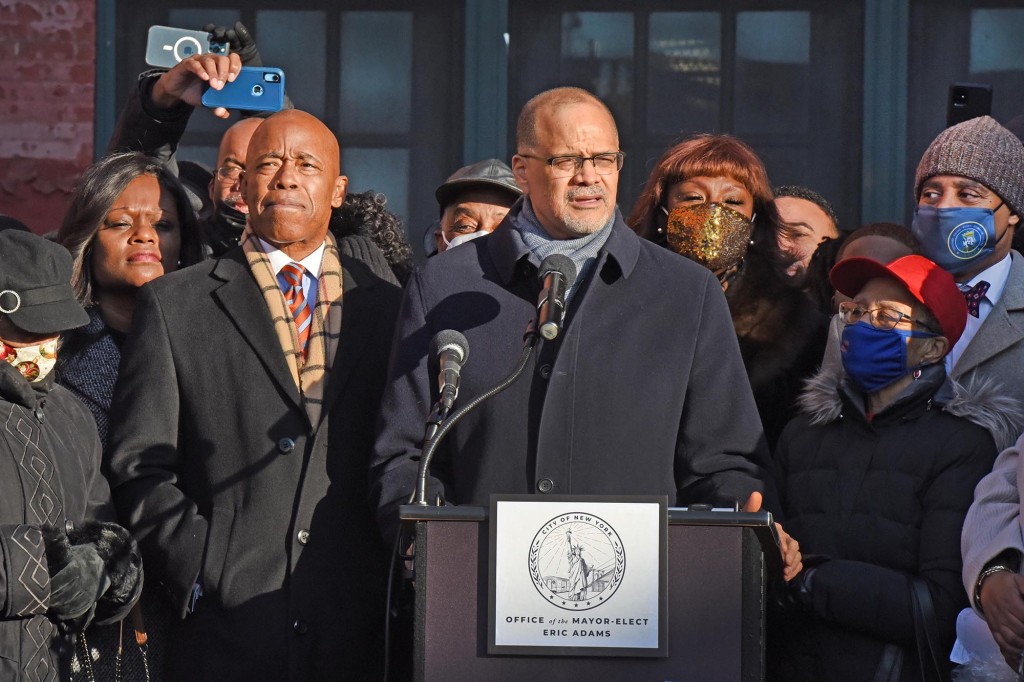Schools-chancellor-to-be David Banks continues to impress with his sterling vision for advancing city public schools: accountability, innovation and results.
Banks’ push for accountability began the day Mayor-elect Eric Adams introduced him as the next chief of the city Department of Education: “Any agency that has a $38 billion annual budget . . . and yet we have 65 percent of black and brown children who never achieve proficiency,” he said. “That should be outrageous, it’s a betrayal.”
Certainly, the career educrats at the DOE’s Tweed headquarters started to squirm in their seats. Rightly so, as their incoming boss believes the school system is flawed — and needs fixing from the bottom up. That is, the voices to guide that change are principals and parents, not bureaucrats.
And where recent chancellors have sought to basically destroy the city’s specialized high schools, Banks would rather expand these academic jewels. He told PIX 11 News that he’s open to creating new ones, with their own admissions criteria.
His approach to Gifted & Talented programs is similar. Instead of gutting the programs, as Mayor Bill de Blasio ordered, Banks will look to enlarge G&T so more students of all races can benefit — and, not incidentally, get on the track to win admission to the elite high schools.
Among the deep experience Banks brings to his new job is time working as a school safety officer: With that perspective, he wants the NYPD to continue to handle school safety. But he’s also sensitive to students’ concerns about the airport-style metal detectors deployed at schools where weapons have been seized. He has vowed to bring in newer, less obtrusive detection systems.
And his years as a hands-on educator have led him to endorse relying on phonics to teach reading, rather than the “blended” and/or “balanced literacy” approaches pushed by theorists and (naturally) embraced by the bureaucracy.
“They’re teaching wrong,” Banks told CBS2’s Marcia Kramer. And abandoning the “phonetic approach” has “been a huge part of the dysfunction.”
In his media rounds, Banks also talked of changing how teachers, parents and students view the academic year. To teachers unwilling to work a longer school year, he said: “If we continue to do things the way we’ve been doing them, we’ll continue to get the same results.”
Bottom line: Banks is intent on bringing sanity as well as accountability to the school system. Increase opportunity by expanding it, not by dropping standards to allow for race-obsessed social engineering. Empower the people who care most about kids. Focus on what works, not what’s trendy among academics or favored by agenda-driven politicians.
After eight years of chancellors appeasing the system’s vested interests and playing divisive race-baiting games, Banks’ focus on what’s actually best for students is a welcome relief.



















